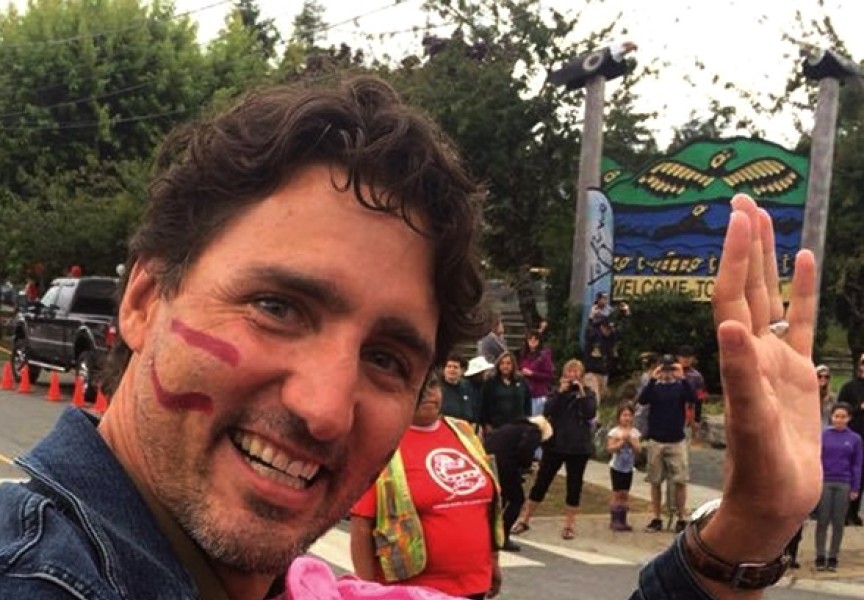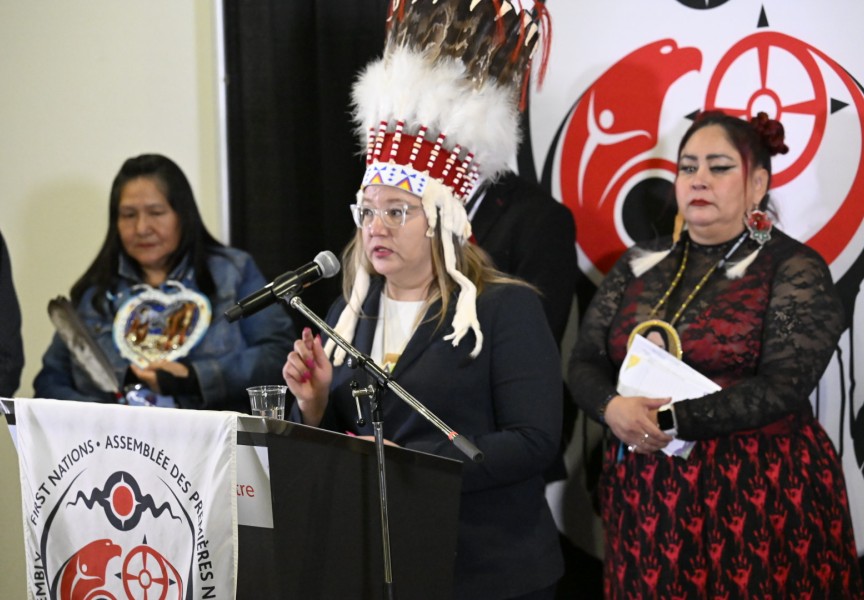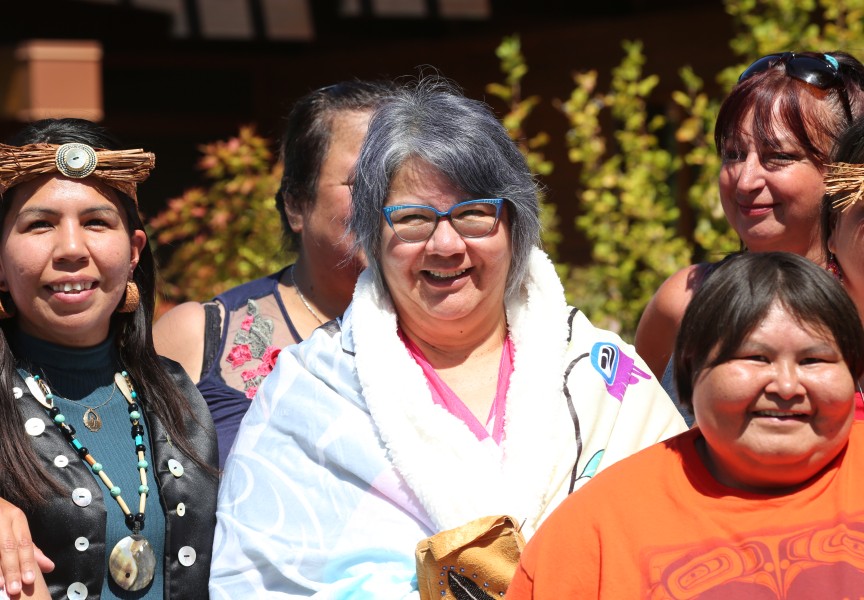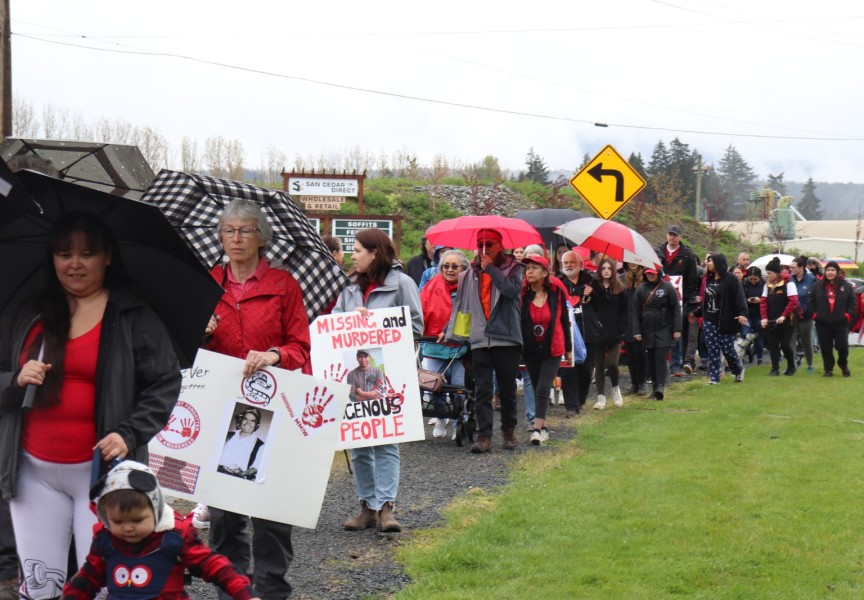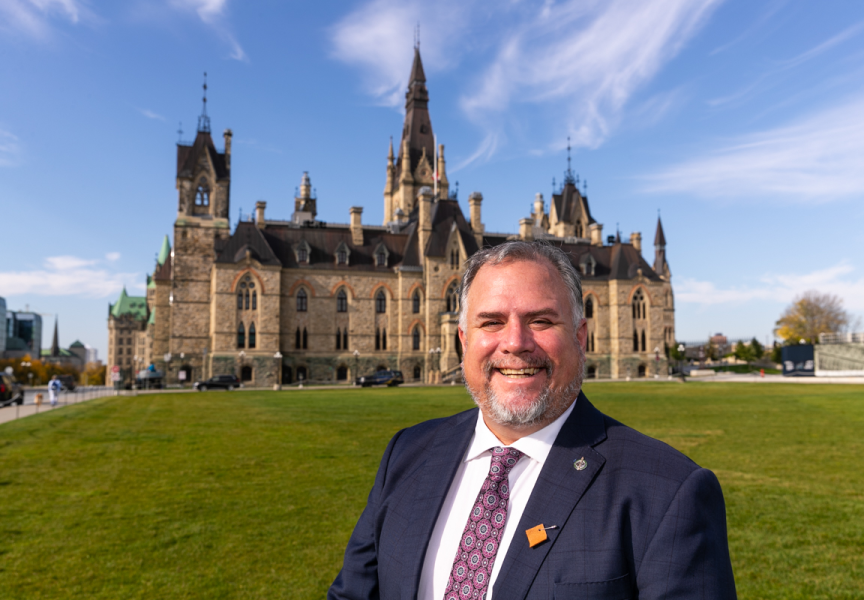Government’s failure to negotiate in good faith and refusal to respect constitutionally protected Indigenous fishing rights is putting lives at risk, says MP Gord Johns.
The NDP fisheries critic along with the Union of B.C. Indian Chiefs are urging the federal government to defend Indigenous fishing rights after tensions among non-Indigenous fishermen led to acts of intimidation and threats against a Mi’kmaq lobster fishery.
“These actions represent a serious and critical threat not only to the Mi’kmaq Nation’s welfare and safety but to the collective treaty rights and sovereignty of First Nations across the country,” the Union of B.C. Indian Chiefs stated in a news release.
Sipekne’katik First Nation opened its self-regulated lobster fishery last month, maintaining they have the treaty right to fish for a moderate livelihood throughout the year. The early opening, prior to the federally regulated season, stirred resentment among hundreds of non-Indigenous fishers, some of whom used their boats to intimidate, threaten and harass the Mi’kmaq fishers. Boats came dangerously close to colliding while Mi’kmaq traps were cut or stolen.
A second Mi’kmaq lobster fishery opened Oct. 1 amid calls for creation of a new co-management approach to address conflicts.
Johns is urging the government to intervene before the situation worsens.
“From the Nuu-cha-nulth on the west coast to the Mi’kmaq on the East Coast, the Liberals have spent millions on lawyers to fight Indigenous fishing rights,” Johns told the House of Commons. “And time and time again, the courts have upheld Indigenous rights. Now, the Liberals are talking out of both sides of their mouths,” said Johns. “By trying to play both sides, they’re leaving DFO officials without a clear mandate and putting lives at risk.
While the courts have consistently backed First Nations, reaffirming constitutionally protected rights, successive Conservative and Liberal governments have knowingly sent negotiators to the table emptyhanded, Johns said. That tactic has created conflict on the water and the docks between user groups. He cited a 2018 B.C. Supreme Court ruling, which found that “Ottawa failed to allow the regional (DFO) staff to engage meaningfully and wholeheartedly in the negotiations.
“Will the minister finally back up her claims that she supports self-determination by actually upholding inherent and constitutionally protected rights,” Johns asked.
“Right now, the government’s No. 1 priority is making sure people stay safe in southwest Nova Scotia where the tensions are quite high,” Fisheries Minister Bernadette Jordan replied. “We believe the best way forward is through respectful and collaborative dialogue. We are working hard to make sure that we uphold those treaty rights.”
UBCIC said it supports the Mi’kmaq call for the minister, provincial authorities and RCMP to uphold the law: “Government inaction and indecision must not bolster and condone the infringement of Mi’kmaq rights and further acts of hostility and violence.”
Out west, the five T’aaq-wiihak nations — Ahousaht, Ehattesaht/Chinehkint, Hesquiaht, Tla-o-qui-aht and Mowachaht/Muchalaht — have much in common with the Mi’kmaq. They, too, have an inherent right to catch and sell fish traditionally caught in their territories but have not seen significant catch allocations since the court affirmed that right in 2009. Recognizing a common interest, Nuu-chah-nulth and Mi’kmaq representatives have collaborated, acting as court intervenors for one another, which allows them to comment on proceedings.
There have been incidents involving racism and harassment on the West Coast as well, said Wickaninnish, Cliff Atleo, Ahousaht lead negotiator.
“There is racism by DFO. There’s no doubt about how the government stood by and watched,” Atleo said, referring to tensions in Nova Scotia. The Mi’kmaq fishery was supported by a Supreme Court decision in March, he pointed out.
“It’s not the first time DFO and the government of Canada have shown their colours against our people,” Atleo said. “They refuse to negotiate, although they call it negotiation.”
He isn’t optimistic that government intransigence will end anytime soon. Conflicts over Indigenous fishing rights can only be resolved when the federal government listens to Prime Minister Justin Trudeau, who has acknowledged that systemic racism exists within institutions, he noted. Trudeau pledged again in September’s Speech from the Throne, to tackle the issue.
“We just have to keep plugging away,” Atleo said. “We keep fighting, keep asserting, keep exercising. We have a strong interest in having a say in management.”
David Murphy, who operates Murphy Sportfishing Charters along the Island’s west coast, believes west coast salmon roundtables have played an instrumental role in resolving conflicts and easing tensions that can arise between user groups.
“Absolutely,” said Murphy, who represents the Sport Fishing Advisory Board at the table. “Everybody in the room is doing their best for the community as a whole. It’s very respectful. Without it, I don’t know where Port Alberni would be.”
Seven roundtables meet to ensure fishing plans are co-ordinated, identify potential conflicts and, if possible, recommend solutions. The Area 23 roundtable, which includes representatives from each of the Maa-nulth First Nations as well as the Tseshaht and Hupacasath, has provided a model for others to follow, Murphy said.



